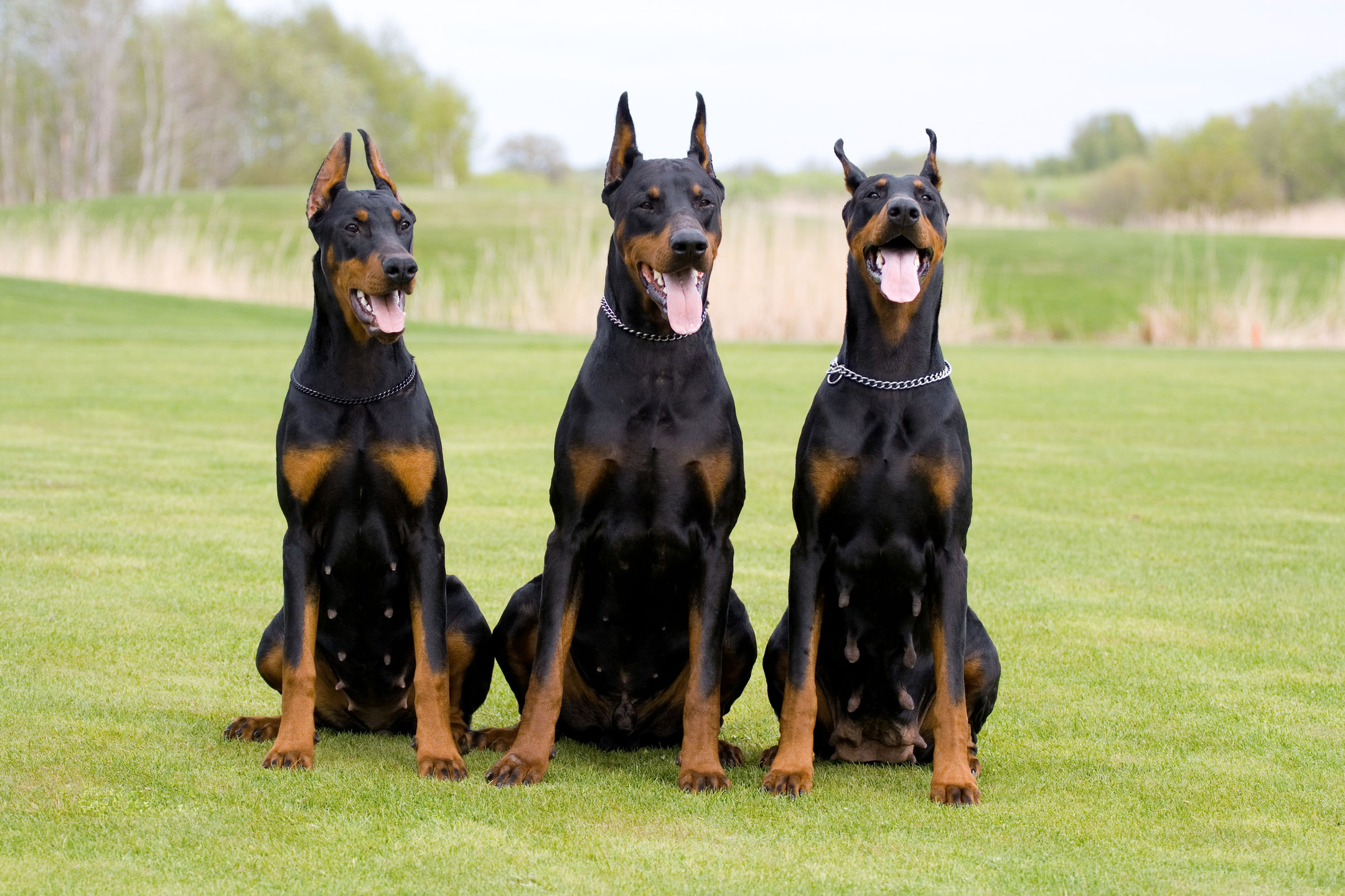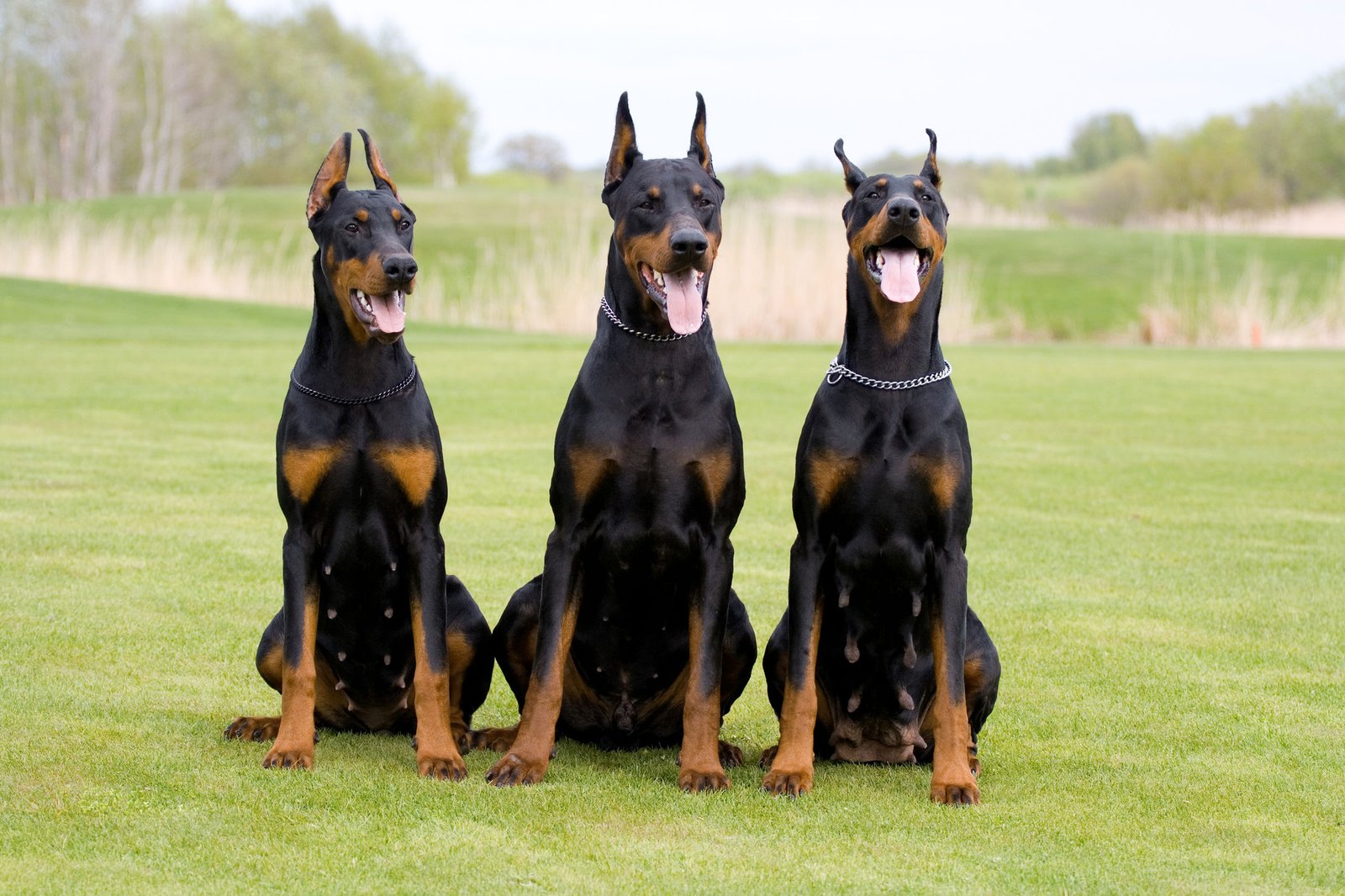Owning a Doberman can be an incredibly rewarding experience. These intelligent and loyal dogs make excellent companions and are known for their protective nature. Did you know that the Doberman Pinscher was originally bred by a German tax collector named Karl Friedrich Louis Dobermann? He wanted a dog that was both fiercely loyal and protective, making the Doberman an ideal choice for those seeking a devoted and watchful companion.
When considering owning a Doberman, it is important to understand their history and temperament. Dobermans were initially bred for protection and were used as guard dogs. Today, they are still commonly employed in roles such as police and military work. This breed requires early socialization and consistent training to ensure their well-rounded development. It is worth noting that Dobermans can be prone to certain health issues, such as hip dysplasia and dilated cardiomyopathy. However, with proper care and regular veterinary check-ups, these risks can be minimized, allowing you to enjoy many happy years with your Doberman companion.
If you’re considering owning a Doberman, there are a few key things you should know. These intelligent and loyal dogs require consistent training and socialization to thrive. Providing them with regular exercise and mental stimulation is essential for their well-being. It’s important to understand their potential health issues and be prepared for regular veterinary care. Additionally, Dobermans can be protective and may require extra attention to ensure they are well-socialized with people and other animals. Owning a Doberman can be a rewarding experience with the right knowledge and commitment.

What to Know About Owning a Doberman?
Are you considering getting a Doberman as a pet? Owning a Doberman can be a rewarding experience, but it’s important to understand the breed and what it entails. From their exercise needs to their temperament, there are several factors to consider when bringing a Doberman into your home. In this article, we will explore everything you need to know about owning a Doberman.
Exercise Needs
Dobermans are an active and energetic breed that requires regular exercise to keep them happy and healthy. They have high energy levels and need daily physical and mental stimulation. A minimum of 30-60 minutes of vigorous exercise, such as brisk walks, jogging, or playing fetch, is necessary to meet their needs.
Engaging in activities like obedience training, agility training, or participating in dog sports can also provide mental stimulation for Dobermans. Failure to provide sufficient exercise and mental stimulation can lead to boredom, destructive behavior, and even aggression.
It’s important to note that Dobermans are not well-suited to apartment living or homes without a yard. They thrive in homes with ample space to run and play, so ensure your living situation can accommodate their exercise needs.
Temperament and Training
Dobermans are known for their loyalty, intelligence, and protective nature. They are often described as “velcro dogs” due to their tendency to form strong bonds with their owners and constantly stay by their side. However, proper socialization, training, and early exposure to various environments are crucial in shaping their temperament.
Early obedience training and consistent, positive reinforcement are essential for Dobermans. They respond well to firm, yet gentle, training methods. Dobermans are highly intelligent and thrive when given mental challenges and tasks to accomplish.
Socialization
Proper socialization is key to raising a well-rounded and confident Doberman. Expose them to different people, animals, environments, and situations from a young age. This will help them develop appropriate social skills and reduce the likelihood of fear or aggression towards unfamiliar stimuli.
Enrolling your Doberman in puppy socialization classes and regular interactions with other well-behaved dogs can be beneficial. It’s important to note that Dobermans have a natural guarding instinct, so early socialization is crucial in helping them distinguish between harmless encounters and real threats.
Grooming and Care
Dobermans have a short, sleek coat that requires minimal grooming. Weekly brushing with a soft-bristle brush or rubber mitt will help keep their coat healthy and remove any loose hairs. They are a clean breed and have minimal doggy odor.
Regular dental care, including brushing their teeth and providing dental chews, is important for maintaining their oral health. Additionally, trim their nails regularly and clean their ears to prevent infections. It’s also recommended to provide them with regular flea and tick prevention.
Health Concerns
Like any breed, Dobermans are susceptible to certain health issues. Some common health concerns in Dobermans include:
- Dilated cardiomyopathy (a heart condition)
- Von Willebrand’s disease (a blood clotting disorder)
- Hip dysplasia (a hip joint problem)
- Hypothyroidism (an underactive thyroid gland)
Regular veterinary check-ups and a healthy diet are important to monitor and maintain your Doberman’s overall health. Be prepared for potential medical expenses and consider pet insurance to help cover any unexpected costs.
Ownership Considerations
Owning a Doberman requires commitment, time, and resources. Consider the following factors before bringing a Doberman into your home:
- Space: Dobermans need ample space to exercise and play, ideally with access to a secure yard.
- Training: Dobermans thrive with consistent training and mental stimulation.
- Time: They require daily exercise, grooming, and attention.
- Socialization: Proper socialization is necessary to ensure a well-behaved and confident Doberman.
- Healthcare: Be prepared for potential veterinary costs and regular check-ups.
When properly cared for and trained, Dobermans make loyal and loving companions. They are protective and devoted to their family, making them excellent guard dogs. With the right combination of exercise, training, and socialization, owning a Doberman can be a highly rewarding experience.
Is a Doberman the Right Dog Breed for You?
If you are looking for a loyal, intelligent, and protective companion, a Doberman may be the right breed for you. However, it’s important to consider the specific traits and needs of Dobermans before making a decision. Here’s what you need to know:
Dobermans are highly energetic and require regular exercise and mental stimulation. They are not well-suited for apartment living or homes without a yard. You should be prepared to dedicate time and effort to their exercise and training needs.
These dogs are known for their loyalty and bond with their owners. They are protective by nature and are often described as “velcro dogs,” as they tend to stay close to their owners. This loyalty can make them excellent guard dogs.
Dobermans require early socialization and consistent training to ensure they develop into well-behaved and confident dogs. They respond well to positive reinforcement and mental stimulation.
Additionally, Dobermans have minimal grooming needs thanks to their short coats. However, they may be prone to certain health issues, so regular veterinary check-ups and a healthy diet are important.
Ultimately, the decision to bring a Doberman into your home should consider your lifestyle, commitment, and ability to provide for their specific needs. If you are prepared to dedicate time, effort, and resources to a Doberman, they can be a loyal and loving addition to your family.
Key Takeaways
- Owning a Doberman requires commitment and responsibility.
- Dobermans are intelligent and trainable dogs.
- Proper socialization is crucial for Dobermans to prevent aggression.
- Dobermans have a strong protective instinct and are loyal to their owners.
- Regular exercise and mental stimulation are essential for Dobermans’ well-being.
Frequently Asked Questions
Here are some common questions and answers about owning a Doberman:
1. Are Dobermans good family pets?
Yes, Dobermans can make excellent family pets. They are known for their loyalty and protective nature, which makes them great companions and guardians. However, it’s important to note that Dobermans require proper training, socialization, and exercise to become well-rounded family pets.
Training and socialization from an early age can help ensure that Dobermans are friendly, obedient, and well-behaved around children and other animals. Additionally, regular exercise is essential to prevent boredom and keep them mentally and physically stimulated.
2. How much exercise do Dobermans need?
Dobermans are an energetic breed and require a significant amount of exercise to keep them happy and healthy. They should ideally have at least one to two hours of physical activity each day. This can include long walks, jogging, running, playtime in a secure and enclosed area, and interactive games.
Providing mental stimulation is also important for Dobermans as they are intelligent dogs that require mental challenges to prevent boredom. Activities such as puzzle toys, obedience training, and agility courses can help keep their minds sharp.
3. Are Dobermans good with children?
Dobermans can be good with children when they are properly trained, socialized, and introduced to children at a young age. They are generally gentle and protective of their family members, including children. However, supervision is always recommended, especially when there is a large size difference between the dog and the child.
Teaching children how to interact with dogs and setting boundaries is essential for a positive relationship between a Doberman and a child. It’s important to educate children on respecting the dog’s space, not pulling their ears or tail, and not bothering them while they eat or sleep.
4. How should I train a Doberman?
Training a Doberman should start as early as possible to establish good behavior and manners. Positive reinforcement techniques, such as rewards, treats, and praise, work best for Dobermans as they respond well to positive motivation.
Consistency is key when training a Doberman, and it’s important to set clear boundaries and expectations. Basic obedience commands like sit, stay, and come are crucial for their safety and well-being. Additionally, socialization with different people, animals, and environments should be a part of their training to ensure they are well-adjusted and confident.
5. What are the common health issues in Dobermans?
Dobermans are generally a healthy breed, but they are prone to certain health issues. Some common health problems that can affect Dobermans include:
- Dilated cardiomyopathy (heart disease)
- Hip dysplasia
- Von Willebrand disease (blood disorder)
- Hypothyroidism
- Wobbler syndrome (vertebral instability)
Regular veterinary check-ups, a balanced diet, and proper exercise can help prevent or detect these health issues early on. It’s important to choose a reputable breeder who performs health screenings on their dogs to reduce the risk of inherited diseases.

Owning a Doberman requires careful consideration and preparation. They are intelligent and active dogs that need lots of physical and mental stimulation.
As a responsible owner, it’s important to provide them with proper training and socialization from a young age. Dobermans can be protective and territorial, so early socialization is crucial to prevent aggression issues.
Regular exercise and mental enrichment are essential to keep your Doberman happy and healthy. They excel in activities like obedience training, agility, and scent work. Daily walks and play sessions are necessary to meet their exercise needs.
Dobermans are affectionate and loyal, making them great family pets. However, they can be wary of strangers and may require patience and time to warm up to new people.
It’s important to note that Dobermans have specific health concerns, such as dilated cardiomyopathy and hip dysplasia. Regular veterinary check-ups and a balanced diet can help mitigate these risks.
Owning a Doberman can be a rewarding experience, but it requires commitment, time, and effort to meet their needs and ensure their well-being.
